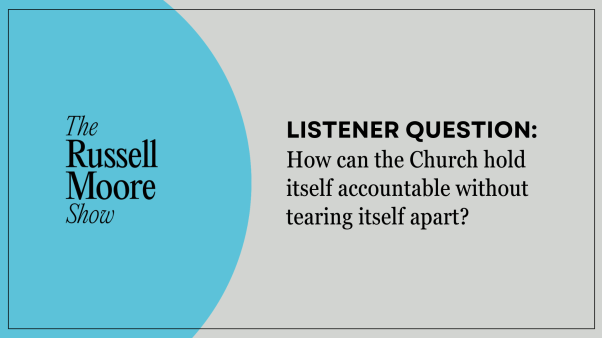An earnest effort to relate academic disciplines to Christian realities
In the context of a Danforth Foundation survey of 800 church-related colleges in the United States, evangelical college presidents recently drafted a model distinguishing their liberal arts institutions from other types. They characterized their institutions as “affirming” colleges—in contrast with non-affirming secular colleges and with so-called free Christian colleges staffed by theologically mixed faculties, and in contrast also with mere “defender of the faith” institutions.
These college presidents, though noting that defense and apologetic are not necessarily incompatible with free inquiry, hold that their institutions are not defensive but declarative. Many Roman Catholic colleges have been described in educational circles as “defender of the faith campuses,” and the term has been used also for fundamentalist colleges, especially by educators who contend that academic open-mindedness requires a religiously pluralistic faculty.
Although they represented denominational and interdenominational campuses of a dozen traditions, the presidents, deans, and professors worked out a common model of the faith-affirming evangelical college. Their statement follows:
THE AFFIRMING COLLEGE
The over-all purpose of the evangelical college, as a distinct type of institution, is to present the whole truth, with a view to the rational integration of the major fields of learning in the context of the “Judeo-Christian” revelation, and to promote the realization of Christian values in student character.
Its requirement for full-time faculty includes commitment to the institution’s announced religious beliefs, and sympathy with its stated purposes; subscription to an essential core of revealed truths; a vital faith in Christ and a reflection of Christian values in personal conduct; and professional competence as evidenced in academic preparation, teaching effectiveness, and concern for students as persons. The faculty are expected to make an earnest effort to relate the academic disciplines to their religious commitment.
The institution seeks to influence the contemporary culture and to be involved in it. It stands unapologetically for the Christian faith, seeks to bring the Christian ethic to bear upon the culture, and challenges the prevailing secularism and humanism of our times. It aims to prepare students for creative vocational leadership and constructive community involvement.
The college of this type regards an honest and an ongoing investigation of all fields of knowledge as an obligation which arises from its Christian commitment, and it thus faces the world of learning without fear or suspicion. This reflects itself in a genuine desire to strive for academic excellence. Conflicting religious and philosophical views are objectively presented in the classroom, by reference to adequate primary sources and library materials, and by special lecturers.
The faculty as a true community of Christian scholars are encouraged to produce significant literature in their fields.
The teaching of the Bible is considered a necessary element in undergraduate education, with its content related to other liberal arts concerns. The Bible is viewed not merely as an additive but as an integrating force.
The preferred product of the college is a committed Christian. The religious life of the student is cultivated by required chapel services which contribute through the dimension of worship to the total experience of a full college life.
The college aims to bring the student to a knowledge that he walks in the grace of God and that by moral obedience he is truly free. The student is encouraged to recognize that the revealed commandments of God are the supreme criteria of the good life and both in his inner life and external conduct to mirror the example of Christ in human relationships.
The special contribution of this type of college to service professions, such as the ministry, teaching, medicine, and social work, is noteworthy.
The administrative pattern of this type of college tends to follow that of private colleges generally.
Trustees are drawn primarily from the religious constituency served by the college. Religious conviction, as well as business and professional acumen, is an important criterion in their selection.
The colleges of this type, with few exceptions, have small endowments and limited financial resources. They rely heavily upon their own constituency for support. Some receive substantial denominational support, but most depend on gifts from individuals and congregations.
These institutions have close relationships with their churches. Their alumni are making a vital contribution to the mainstream of the Church in all areas of leadership.
On Fabricating A New Morality
The tempo of assault upon the revealed moral values of the Judeo-Christian religion seems to be increasing in some intellectual circles, precisely at the moment when secular alternatives are dragging the ethical standards of the West down to pagan depths.
The summer, 1965, issue of the American Scholar, the quarterly published by Phi Beta Kappa, carries “A Symposium on Morality” in which a number of prominent participants explicitly reject the good as based on any transcendent source, and the knowledge of it as based on revelation. Edmund Fuller stands alone in the group in advocating the Christian position. Hiram Haydn, the magazine’s editor, declares that “good and evil do not admit of universal definition” and asserts that “the basic moral problem of today … is choosing, not between good and evil … but between two goods.” In a day of declining sexual standards and increasing crime, this should be welcome news to worldlings. David Garnett, British author and critic, asserts his belief that Judeo-Christian morality is “wholly impermanent.” And Dr. Henry A. Murray, psychologist and professor emeritus of Harvard University, states that “we must think of morals as evolving,” and adds for good measure, “If one had to contrive a system that would manufacture hypocrites by the millions, one couldn’t have done better than invent the Christian system of morality.”
If the modern mind is agreed on an improvement of biblical morality, now is the time for it to state its principles with clarity. Meanwhile, Christians remain confidently convinced that moral duty is best summarized in the command to love God with one’s whole being and one’s neighbor as oneself.
About Dollars And Sense
“Turn backward, turn backward, O time in thy flight,” is a line of a poem, not a live option. We have as little chance of going from our smoggy, traffic-clogged highways back to the horse and the surrey with the fringe on top, as we have of avoiding the coming computerized world of cybernetics. According to reports, there is already a completely computerized bakery in Chicago.
Since a high degree of automation is bound to come, it is not too early to give serious thought to the question of wages and salaries and to the unemployment that will accompany it. Even if automation brings with it as yet unimagined possibilities of new kinds of work and forms of earning, there may be a period of agonizing readjustment during which the loss of employment and earning power could be a very real problem for many people.
If a shorter work week seems almost inevitable, with it must come knowledge of how to use an increased amount of leisure time without falling into mischief or boredom or both. A lightened workload would provide great possibilities for the arts, including a recapture of the delight of the artisan whose slower pace once allowed for the attainment of fine craftsmanship in the manual arts. Yet even the artist and the artisan must eat and must provide for his family.
Alert to what is coming, the Rev. Phillip R. Newell, Jr., associate pastor of Washington’s historic New York Avenue Presbyterian Church, told an annual conference sponsored by the Health and Welfare Council of the National Capital Area, “We should not be afraid to pay people just to sit on their doorsteps or just to be responsible heads of families if that is what is necessary to rekindle a sense of community and fellowship.”
We do not believe that anybody is obligated to pay anybody for sitting on his steps, or for being a good father. Like art, these activities have their own excuse and carry their own compensations. Nor is there any evidence that receiving wages for such activities would create a sense of community and fellowship. The step-sitter might be just ornery enough to say, “Sit on your own steps!” Besides, it might also undermine the community spirit of the mailman who had to climb the steps to deliver the check. It may well be that, during the period of unavoidable disruption automation will bring, the man on the porch and the father with no work will have to be paid, but for quite other reasons.
Nor was Mr. Newell throwing much light when he warned that the old Calvinistic idea of reward-only-if-you-work may have to be discarded. This is hardly a distinctively Calvinistic idea, going back as it does to Adam, who was obliged to till his garden if he wanted to eat.
The Christian theology of work and reward will have to include new responses to a highly computerized society in which much labor is done automatically; but surely the principle that wages and salaries are for work, not for step-sitting or for fulfilling the role of father, ought not to be forsaken.
How quickly some men abandon principles for some dreamy, unrealistic novelty! Fortunately, this proposal is just too dreamy. The businessman has yet to be found who will send a weekly check to the stoop-sitter, or to a man for getting himself a wife and some children. Not many takers will be found for this kind of soft-headed theology. American dollars these days are soft, but not the people who have them.
Sometimes we fear that computers will be smarter than people.
The Evangel: Now Or Never?
We noted a news report the other day decrying “instant evangelism.” The Southern Baptist professor who deplored quickie conversions had a point, of course; sound religious experience requires some elemental understanding of issues and effective follow-up. Granted all that, however, spiritual rebirth is the moment when new life begins, and without it people remain spiritually lifeless. The prime trouble today is not that Christians evangelize too hurriedly; rather, it is that too many do not evangelize at all. And even the seminaries, though specializing in the subtleties of theology, seem more often to dull the Gospel’s “now is the accepted time” than to reinforce it.
Eruption In Los Angeles
Flying the jetliner into Los Angeles, the pilot redirected our gaze from swimming pools below to smoke rising from the nearby Negro ghetto of Watts. The proverb held—there was indeed fire beneath, and it answered to fire in Negro hearts far more intense than expected in the City of the Angels, regarded as an American community well advanced in race relations.
The squalor, the heat, the resentment, the burning, the beating, the killing—these have been graphically portrayed in news media, and now the sociologists are at work trying to explain the picture of violence seen round the world. For men’s seething outrage defied and abandoned reason as it wrought a deadly self-immolation. And the fire crackled and spread beyond the boundaries of Watts and leaped to other parts of the country.
The sociologists are distinguishing between the riots of this year and last and those of previous years that directly pitted race against race. Today’s frustration, they tell us, is the result of rising Negro expectations for their living standard without equivalent gains in the cold sphere of reality. Of the 1.5 million Negroes who have left the South in the last ten years, one of four has entered wealthy California. Improvement in communications has shown him the extent of his poverty in the midst of an affluent setting. In such a context, a spark may set off a blind reaction in which he harms himself much more than the whites he holds responsible for his condition. Pointlessly he hurts his legitimate civil rights cause by confirming for many whites the common identification of the Negro with lawlessness, notwithstanding monumental Negro patience in many cases in the midst of hardships unknown to most whites.
Some wonder whether there may be a tangled web of causes far more complex than those yet advanced. California’s Governor Edmund Brown has appointed an investigating committee to be headed by John A. McCone, former head of the Central Intelligence Agency.
President Johnson spoke well when he said; “A rioter with a Molotov cocktail in his hands is not fighting for civil rights any more than a Klansman with a sheet on his back and a mask on his face.… Neither old wrongs nor new fears can ever justify arson or murder.”
A ghastly antiphony to the Watts savagery came in Hayneville, Alabama, with the cold-blooded shotgun murder of Jonathan M. Daniels, twenty-six, an Episcopal seminary student from Keene, New Hampshire, and the shooting of the Rev. Richard Morrisroe, twenty-six, a Roman Catholic priest from Chicago.
It is daily becoming more apparent that the development of a spirit of lawlessness is a grave peril to the stability of the social order in an age of revolution. Anarchy would be a cruel tyrant for both Negro and white.
On both sides sin, man’s fatal flaw, stands nakedly revealed. Covetousness hurls down the gauntlet to love, which calls for mutual forgiveness. The challenge to ministers of both races is immense. For if ultimate reconciliation among men is the goal, then there must be reconciliation to God. Then there must rise above the embers of Watts a cross upon which must be impaled the human ego and which will point men’s eyes upward to the risen Christ who died for the sins of mankind.
Where The Guns Are Aimed
In his introduction to J. B. Phillips’s Letters to Young Churches, C. S. Lewis wrote:
In the earlier history of every rebellion there is a state at which you do not attack the King in person. You say, “The King is all right. It is his Ministers who are wrong. They misrepresent him and corrupt all his plans—which, I’m sure, are good plans if only the Ministers would let them take effect.” And the first victory consists in beheading a few Ministers: only at a later stage do you go on and behead the King himself. In the same way, the nineteenth century attack on St. Paul was really only a stage in the revolt against Christ. Men were not ready in large numbers to attack Christ himself. They made the normal first move—that of attacking one of His principal ministers …, and so the first victory was won. St. Paul was impeached and banished and the world went on to the next step—the attack on the King Himself. [From Letters to Young Churches, The Macmillan Co., New York. Used by permission.]
This observation is strangely relevant to the current discussion about the proposed new confession of the United Presbyterian Church.
The authors of this document know, as should the membership of their great denomination, that those often-mentioned “new discoveries, formerly unknown manuscripts, and advances in scholarship” have not uncovered one shred of evidence that would affect any of the essential doctrines of the Christian faith.
Why then the need for change? It is not to give scope for the findings of reverent scholarship, or to substitute modern for archaic terms. Rather it is to regularize and give ecclesiastical blessing to those who have long since rejected the faith they solemnly swore to uphold, and to open the door more widely to seminary graduates already conditioned against the theology of orthodoxy. It will permit “interpretations” of Scripture that are actually denials of clearly affirmed truths. We cite the Virgin Birth as an example. The Westminster Confession (Ch. VII:iii) affirms this doctrine because it is taught in Scripture. To reject it in the confession is to reject it in the Bible.
This is not a localized denominational issue. Its implications inevitably extend to every major denomination because all have articles of faith under one name or other. There are bound to be grave repercussions across Protestantism whenever, to meet the demands of unbelief, a system of doctrine is watered clown at the expense of clear affirmations of Scripture.
At the moment C. S. Lewis’s “minister” is under heavy attack in the United Presbyterian Church. Once he is beheaded, the Person and Work of the King will be next.
Russian Atheism Calls For Liturgy
Some Russian Communists are having second thoughts about the incompatibility of religion and Communism. Is the Church a brake on progress and socialism? A long article in Komsomolskaya Pravda that examines the Soviet Communist party’s anti-religious campaign argues that it is not. “A brake on progress indeed!” it says, pointing to Copernicus, Campanella, Thomas More, and Leo Tolstoy. The Russian anti-religious campaign is criticized as “puerile” and “primitive,” and its sponsored meetings a bore to the people. Closing churches, the article says, makes religion attractive.
The author concludes that the campaign cannot succeed with its present “purely negative type of atheism.” Atheism (like thinking!) must be positive. Atheism must provide its own majestic cantatas and oratorios to provide the emotional and aesthetic experience people need, a need once met by the Church. As Christianity overcame paganism by displacing the cult of the gods with the cult of the saints, Communism, it is urged, must provide a new liturgy to displace the liturgy of the Church.
A Christian finds all this most interesting. For one thing, this is a dismal Communist confession of failure to eliminate religion from the life of the Russian people. And is it not significant that the fool who says there is no God must further his negative creed by positive means? Does not atheism call for no religion? Yet the Communist atheist now admits not only that he needs a religion without a God but also that he needs a liturgy to praise his God who isn’t.
Christians have long known that one must be religious in order to be irreligious. Communists are now finding this out and also that religious men have made great contributions to progress. They are learning that to be an anti-religious atheist, one must turn atheism into a religion—liturgy and all! Russian atheistic Communists may soon qualify for dialogue with other religious groups.
‘What, No Keys?’
While traveling in Britain this summer, the writer and his wife stayed in the forty-five room Culag Hotel at Lochinver on the beautiful northwest coast of Scotland. On being shown to our room, we asked the porter for the key. “We don’t have keys,” he replied. Rather taken aback, we said, “What, no keys?” And indeed the porter was right, for when the manageress was asked for a key, she said, “I think we had one once, but I don’t know where it is.” So we stayed quite happily and safely in our unlocked room.
How pleasant, plain everyday honesty makes life. Here was a hotel with no keys and no bolts on the doors, in contrast with our American hotels and motels that provide not only keys but bolts and chains for double locking—and, it should in fairness be said, in contrast also with most other British hotels.
Hats off to the honest Scots of Lochinver! Society would indeed be simple and uncomplicated if more of us could live and work together without keys.










